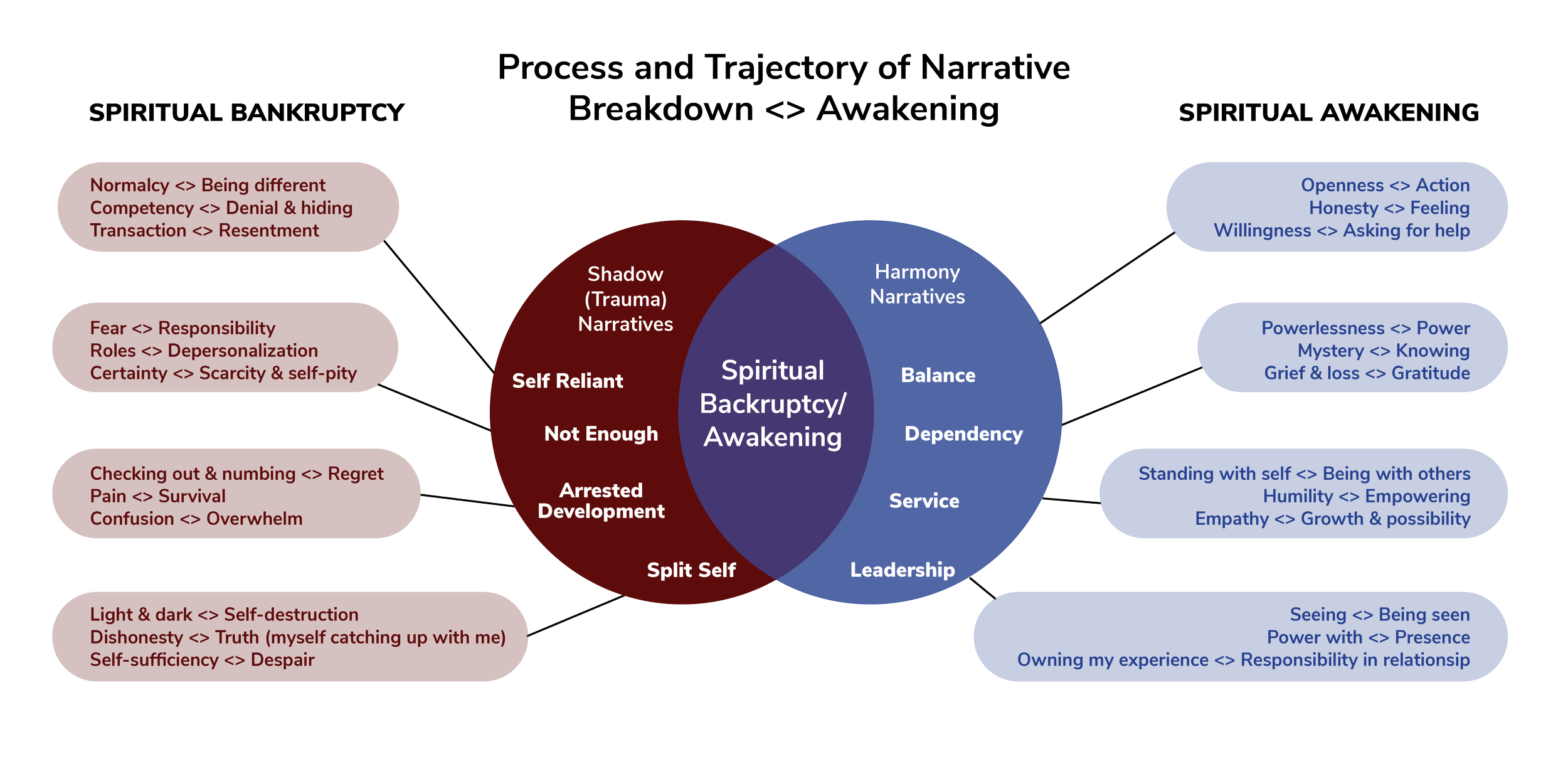Paradoxical Dialogues
The rhetoric (or language) of narrative.
“Learning to love myself has been my greatest act of rebellion. When I have all of these messages in my head of all the reasons why I shouldn’t love myself, that ultimate act of rebellion, of you will not get this from me. Those parts of me that I feel sorry for, or ashamed of, or want to reject, those parts got me here, so I bring them with me. As a result, I get to start being my authentic self, and that changes everything” (P9, P16)”
Paradoxical dialogue was used to define the subcategories under the narratives, because the language, or rhetoric of each narrative was paramount. Individual rhetorics revealed themselves to be linked with a contradictory, yet related element of a polarized rhetoric that when placed together adequately explained the psychosocial process of each narrative form’s dimensions and properties (Corbin & Strauss, 2015).
No paradoxical dialogues are listed under spiritual breakdown/bankruptcy <> awakening because it incorporates no new dialogues but borrows paradoxical language from both the shadow and harmony narratives. Also, no dialogues are fixed but mix and match to build and reinforce the dominate narrative under construction be it on the shadow or harmony side.
Paradox holds opposites together to recognize unthought of possibilities (Lewis, 2000).

